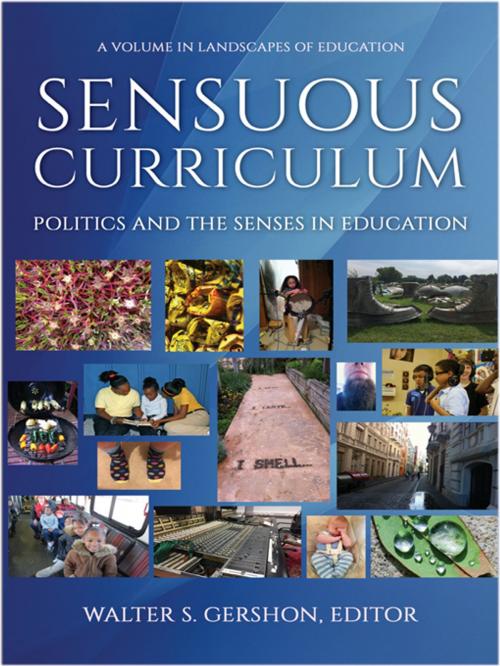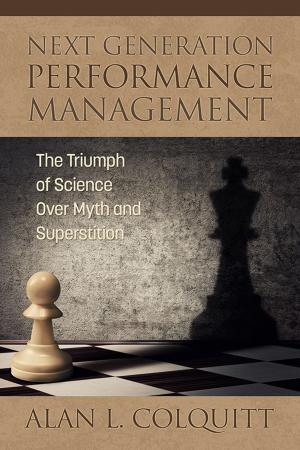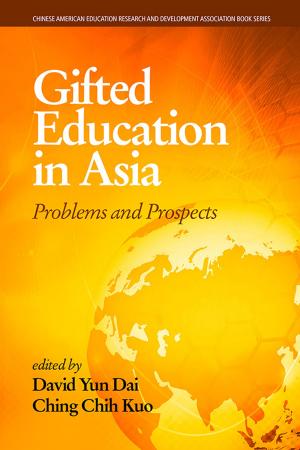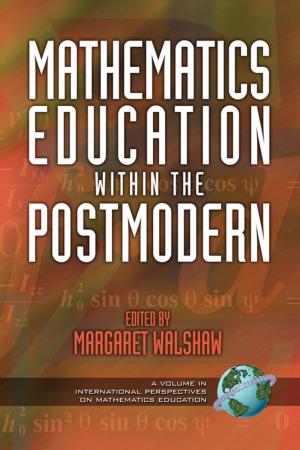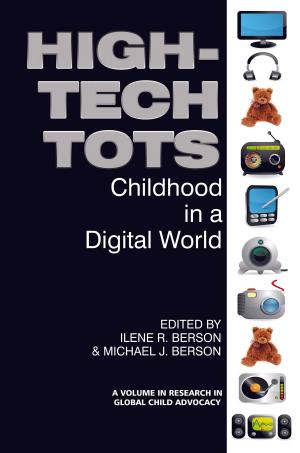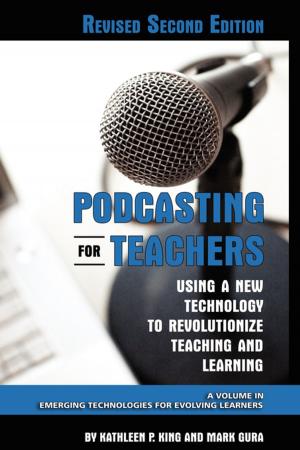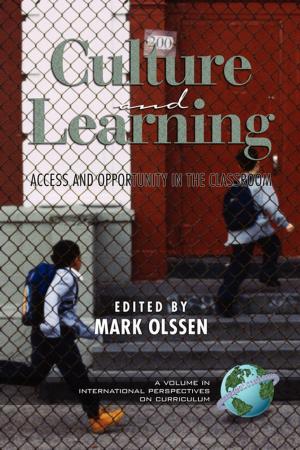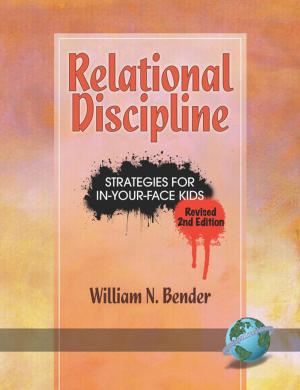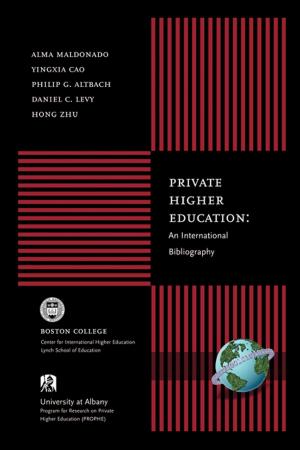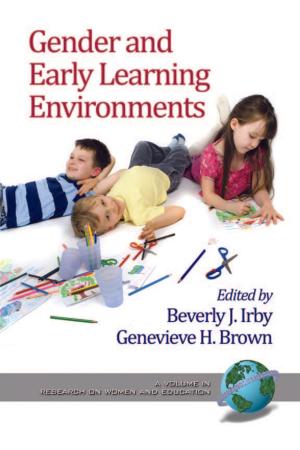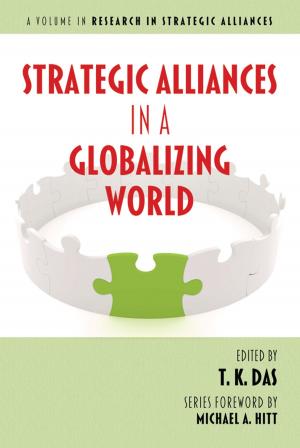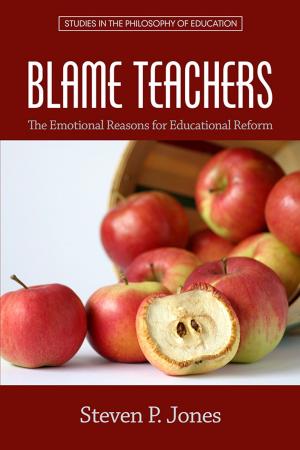Sensuous Curriculum
Politics and the Senses in Education
Nonfiction, Reference & Language, Education & Teaching, Educational Theory, Curricula, Educational Psychology| Author: | ISBN: | 9781641135832 | |
| Publisher: | Information Age Publishing | Publication: | July 1, 2019 |
| Imprint: | Information Age Publishing | Language: | English |
| Author: | |
| ISBN: | 9781641135832 |
| Publisher: | Information Age Publishing |
| Publication: | July 1, 2019 |
| Imprint: | Information Age Publishing |
| Language: | English |
The sensuous is the human experience, unfolding our everyday experiences and articulating our affects. Without sensory information, we could neither know nor be. This is because we gain information through our senses and interpret that information as perceptions, the sociocultural frames used to analyze that input. This is the case regardless of how a sensorium is constructed, a more limited Western five senses model for example. It is also the case no matter how senses are defined, they ways they are expressed, or the ways in which they are understood to function. Further, because there are often greater differences between members within a particular group than divergences between groups, how one attends to and acts in light of sensory information is always a polyphonic tapestry constructed on the warp of the sociocultural and the weft of individualism. Education, the transfer of information between people, animals, things, and ecologies, is therefore a sensory endeavor. Sensuous curriculum is one means of describing this deeply layered intersection of educational ways of being and knowing. In many ways inverting how questions of curriculum are often framed, Sensuous Curriculum: Politics and the Senses in Education foregrounds how sensory understandings are forms of educational, relational politics. Bringing the depth and complexity of sensory studies firmly into curriculum and foundational studies of education, contributors to this volume address this educational and political intersection from a wide variety of theoretical and practical perspectives that are always embodied and material. Approached in an academic yet accessible manner, Sensuous Curriculum addresses key questions about what it means to educate and the ideas and ideals render those understandings sensible. This variety, depth, and accessibility combine to make Sensuous Curriculum an important resource for those interested in critical studies of the senses in educational ecologies and holistic education. It is a text as at home in theory and methods doctoral courses as it is in undergraduate courses for preservice teachers and will be of interest to those searching for rich ways to conceptualize education outside of a standards-centric perspective. Praise for Sensuous Curriculum: "This collection engages and challenges readers to think more deeply about questions of curriculum in connection to the sensuous in ways not typically considered, existing multi-dimensionally in transdisciplinary, interdisciplinary, and cross- disciplinary work. This compelling, intellectually stimulating, exhilarating volume is a canonical contribution everyone must study." Theodorea Regina Berry Professor and Chair, African American Studies College of Social Sciences, San Jose State University "Dr. Gershon’s edited collection, Sensuous Curriculum: Politics and the Senses in Education, makes the case for corrective action. By exploring the sensory as human experience, curriculum, and political, the authors of this volume offer iterations and variations for interrupting the ignor(anc)es of the sensorium in education and the body in making sense." M. Francyne Huckaby Associate Dean, TCU School of Interdisciplinary Studies Professor, Curriculum Studies, TCU College of Education & Center for Public Education
The sensuous is the human experience, unfolding our everyday experiences and articulating our affects. Without sensory information, we could neither know nor be. This is because we gain information through our senses and interpret that information as perceptions, the sociocultural frames used to analyze that input. This is the case regardless of how a sensorium is constructed, a more limited Western five senses model for example. It is also the case no matter how senses are defined, they ways they are expressed, or the ways in which they are understood to function. Further, because there are often greater differences between members within a particular group than divergences between groups, how one attends to and acts in light of sensory information is always a polyphonic tapestry constructed on the warp of the sociocultural and the weft of individualism. Education, the transfer of information between people, animals, things, and ecologies, is therefore a sensory endeavor. Sensuous curriculum is one means of describing this deeply layered intersection of educational ways of being and knowing. In many ways inverting how questions of curriculum are often framed, Sensuous Curriculum: Politics and the Senses in Education foregrounds how sensory understandings are forms of educational, relational politics. Bringing the depth and complexity of sensory studies firmly into curriculum and foundational studies of education, contributors to this volume address this educational and political intersection from a wide variety of theoretical and practical perspectives that are always embodied and material. Approached in an academic yet accessible manner, Sensuous Curriculum addresses key questions about what it means to educate and the ideas and ideals render those understandings sensible. This variety, depth, and accessibility combine to make Sensuous Curriculum an important resource for those interested in critical studies of the senses in educational ecologies and holistic education. It is a text as at home in theory and methods doctoral courses as it is in undergraduate courses for preservice teachers and will be of interest to those searching for rich ways to conceptualize education outside of a standards-centric perspective. Praise for Sensuous Curriculum: "This collection engages and challenges readers to think more deeply about questions of curriculum in connection to the sensuous in ways not typically considered, existing multi-dimensionally in transdisciplinary, interdisciplinary, and cross- disciplinary work. This compelling, intellectually stimulating, exhilarating volume is a canonical contribution everyone must study." Theodorea Regina Berry Professor and Chair, African American Studies College of Social Sciences, San Jose State University "Dr. Gershon’s edited collection, Sensuous Curriculum: Politics and the Senses in Education, makes the case for corrective action. By exploring the sensory as human experience, curriculum, and political, the authors of this volume offer iterations and variations for interrupting the ignor(anc)es of the sensorium in education and the body in making sense." M. Francyne Huckaby Associate Dean, TCU School of Interdisciplinary Studies Professor, Curriculum Studies, TCU College of Education & Center for Public Education
